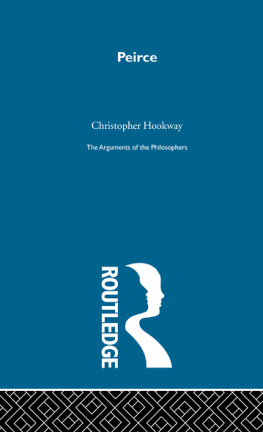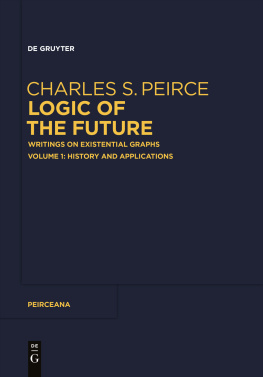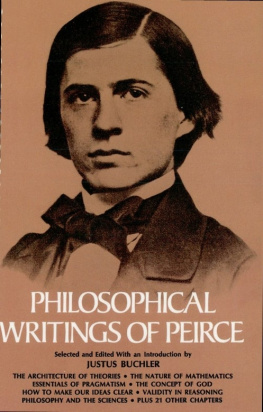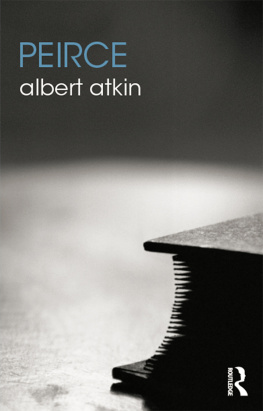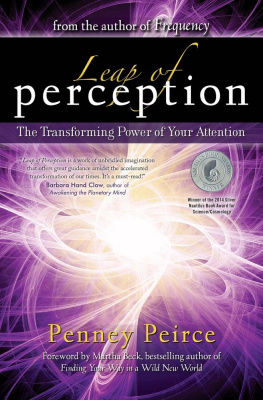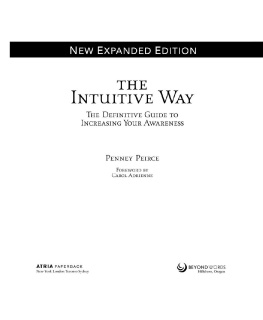Peirce Charles Sanders - Peirce-Arg Philosophers
Here you can read online Peirce Charles Sanders - Peirce-Arg Philosophers full text of the book (entire story) in english for free. Download pdf and epub, get meaning, cover and reviews about this ebook. City: London, New York, year: 1999, publisher: Taylor and Francis; Routledge, genre: Science. Description of the work, (preface) as well as reviews are available. Best literature library LitArk.com created for fans of good reading and offers a wide selection of genres:
Romance novel
Science fiction
Adventure
Detective
Science
History
Home and family
Prose
Art
Politics
Computer
Non-fiction
Religion
Business
Children
Humor
Choose a favorite category and find really read worthwhile books. Enjoy immersion in the world of imagination, feel the emotions of the characters or learn something new for yourself, make an fascinating discovery.
- Book:Peirce-Arg Philosophers
- Author:
- Publisher:Taylor and Francis; Routledge
- Genre:
- Year:1999
- City:London, New York
- Rating:4 / 5
- Favourites:Add to favourites
- Your mark:
- 80
- 1
- 2
- 3
- 4
- 5
Peirce-Arg Philosophers: summary, description and annotation
We offer to read an annotation, description, summary or preface (depends on what the author of the book "Peirce-Arg Philosophers" wrote himself). If you haven't found the necessary information about the book — write in the comments, we will try to find it.
Peirce-Arg Philosophers — read online for free the complete book (whole text) full work
Below is the text of the book, divided by pages. System saving the place of the last page read, allows you to conveniently read the book "Peirce-Arg Philosophers" online for free, without having to search again every time where you left off. Put a bookmark, and you can go to the page where you finished reading at any time.
Font size:
Interval:
Bookmark:
PEIRCE
EDITOR: TED HONDERICH
The purpose of this series is to provide a contemporary assessment and history of the entire course of philosophical thought. Each book constitutes a detailed, critical introduction to the work of a philosopher of major influence and significance.
Plato J.C.B.Gosling
Augustine Christopher Kirwan
The Presocratic Philosophers Jonathan Barnes
Plotinus Lloyd P.Gerson
The Sceptics R.J.Hankinson
Socrates Gerasimos Xenophon Santas
Berkeley George Pitcher
Descartes Margaret Dauler Wilson
Hobbes Tom Sorell
Locke Michael Ayers
Spinoza R.J.Delahunty
Bentham Ross Harrison
Hume Barry Stroud
Butler Terence Penelhum
John Stuart Mill John Skorupski
Thomas Reid Keith Lehrer
Kant Ralph C.S.Walker
Hegel M.J.Inwood
Schopenhauer D.W.Hamlyn
Kierkegaard Alastair Hannay
Nietzsche Richard Schacht
Karl Marx Allen W.Wood
Gottlob Frege Hans D.Sluga
Meinong Reinhardt Grossmann
Husserl David Bell
G.E.Moore Thomas Baldwin
Wittgenstein Robert J.Fogelin
Russell Mark Sainsbury
William James Graham Bird
Peirce Christopher Hookway
Santayana Timothy L.S.Sprigge
Dewey J.E.Tiles
Bergson A.R.Lacey
J.L.Austin G.J.Warnock
Karl Popper Anthony OHear
Ayer John Foster
Sartre Peter Caws
PEIRCE
The Arguments of the Philosophers
Christopher Hookway
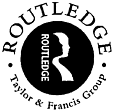
London and New York
First published 1985 by Routledge & Kegan Paul plc
First published in paperback 1992 by Routledge
This edition reprinted in hardback 1999
by Routledge
2 Park Square, Milton Park, Abingdon, Oxon, OX14 4RN
Simultaneously published in the USA and Canada
by Routledge
270 Madison Avenue, New York, NY 10016
Transferred to Digital Printing 2004
Routledge is an imprint of the Taylor & Francis Group
This edition published in the Taylor & Francis e-Library, 2010.
To purchase your own copy of this or any of Taylor & Francis or Routledges collection of thousands of eBooks please go to www.eBookstore.tandf.co.uk.
1985, 1992 Christopher Hookway
All rights reserved. No part of this book may be reprinted or reproduced or
utilized in any form or by any electronic, mechanical, or other means, now
known or hereafter invented, including photocopying and recording, or in
any information storage or retrieval system, without permission in writing
from the publishers.
British Library Cataloguing in Publication Data
A catalogue record for this book is available from the British Library
Library of Congress Cataloguing in Publication Data
A catalogue record for this book has been requested
ISBN 0-203-84971-X Master e-book ISBN
ISBN 0-415-20382-1
ISBN 0-415-20392-9 (set)
Publishers note
The publisher has gone to great lengths to ensure the quality of this reprint but points out that some imperfections in the original book may be apparent.
FOR JO
Many people share the opinion that Charles S.Peirce is a philosophical giant, perhaps the most important philosopher to have emerged in the United States. Most philosophers think of him as the founder of pragmatism and are aware of doctrinesabout truth and meaning, for examplewhich they describe as Peircean. But, curiously, few have read more than two or three of his best-known papers, and these somewhat unrepresentative ones. On reading further, one finds a rich and impressive corpus of writings, containing imaginative and original discussions of a wide range of issues in most areas of philosophy: he appears to have anticipated many important philosophical discoveries of the last eighty years. However, the interest of Peirces work does not consist simply in these detailed examinations of philosophical problems, for he was, above all, a systematic philosopher. Inspired by his reading of Kant, he devoted his life to providing foundations for knowledge and, in the course of doing so, he brought together a number of different philosophical doctrines: the new logic of relations and quantifiers invented independently by Frege in Germany and Peirce himself in the United States; sophisticated insights into the structure of science and the logic of probability; a systematic theory of meaning and interpretation; a developed philosophy of mathematics; a general theory of value; and a metaphysics incorporating an ambitious evolutionary cosmology. It is not wholly surprising that he is not read more widely. As the reader will see from the introduction, he never produced a unified and coherent presentation of the system. We have to work from a mass of papers, sets of lecture notes, reviews, and manuscripts, and on that basishelped by his many programmatic statementsreconstruct the structure and development of his system. For that reason, this book is probably more concerned with exegesis than others in the series: I have set myself the task of writing the book which I had looked for when I started to read Peircehopefully, a clear presentation of his views on the topics of principal concern to him, and an explanation of how the whole is supposed to fit together. While I have not eschewed criticism, the main focus throughout has been upon providing a guide that will enable people to read Peirces works with an understanding of what he is up to and why he presents his doctrines as he does.
Much of the work on the book was carried out during the academic year 19812 when I was a Fulbright Scholar at Harvard University. This enabled me to work on the Peirce manuscripts in the Houghton Library, and gave me valued leisure to think and write. The trip was made possible by the award of an American Studies Fellowship, jointly funded by the American Council of Learned Societies and the United States-United Kingdom Educational Commission (Fulbright-Hayes), and I am pleased to have this opportunity to thank them for their support. I am grateful to Leon Pompa and my colleagues at Birmingham for allowing me to take leave to make use of this opportunity. I have discussed Peirces views with many people, at Haryard and Birmingham, and when I have given talks and papers at conferences and university philosophy departments in Britain and the United States, and I have always profited from these discussions. I cannot thank all of these people individually here, but I would like to acknowledge my colleague Nick Dent whose conversation while the final draft was being prepared and detailed written comments on several chapters have produced substantial improvements. Finally, I hope that my wife, Jo, can feel that the finished book compensates for the separations and stresses of its production. But for her support and encouragement, it would never have been finished.
References to works by authors other than Peirce are by author and date to the list in the bibliography. The one exception to this is that references to Kants Critique of Pure Reason simply take the familiar form: A followed by a page number for quotations from the first edition; B followed by a page number for quotations from the second edition. Throughout, I use Kemp Smiths translation (1933, London: Macmillan).
Font size:
Interval:
Bookmark:
Similar books «Peirce-Arg Philosophers»
Look at similar books to Peirce-Arg Philosophers. We have selected literature similar in name and meaning in the hope of providing readers with more options to find new, interesting, not yet read works.
Discussion, reviews of the book Peirce-Arg Philosophers and just readers' own opinions. Leave your comments, write what you think about the work, its meaning or the main characters. Specify what exactly you liked and what you didn't like, and why you think so.

